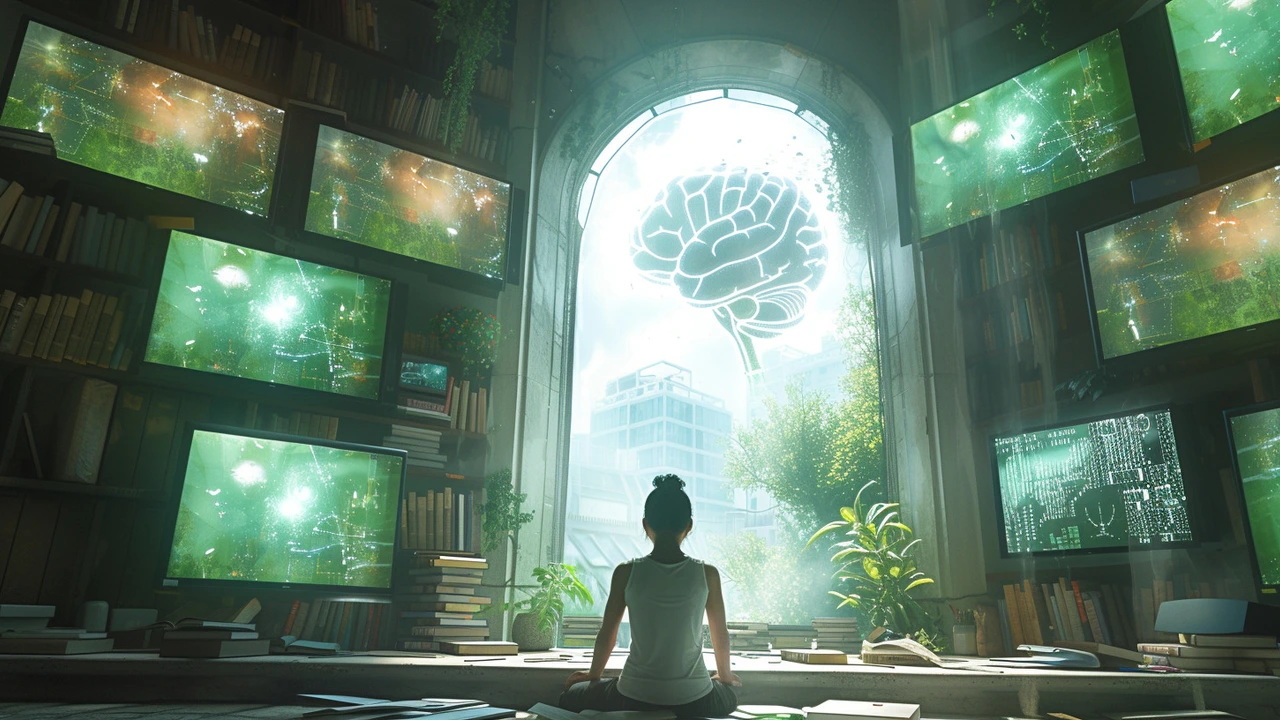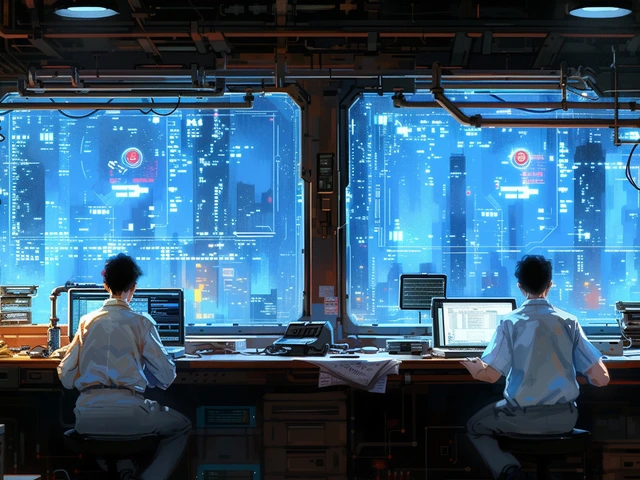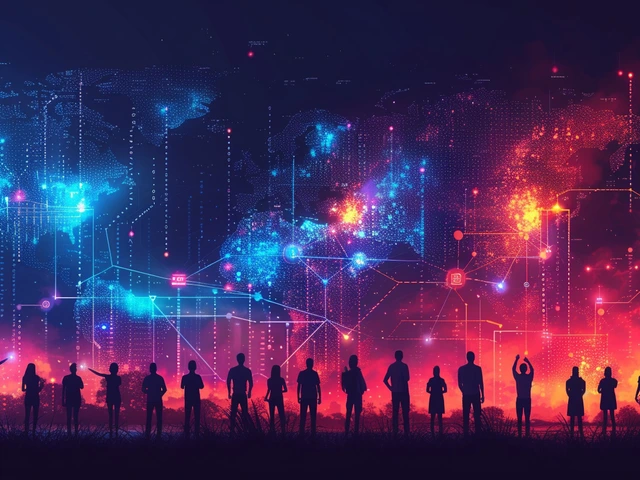Nov
26

- by Harrison Dexter
- 0 Comments
The Dawn of AGI: Decoding the Myth
Before venturing into any discussion about Artificial General Intelligence, or AGI, it's crucial we first disentangle the concept from the entangled web of speculative science fiction and ground it in reality. Now, don't get me wrong; I love a good sci-fi novel as much as the next person. In fact, my tabby cat Oscar often finds himself stationed on my lap as I unwind with a Philip K. Dick novel in the evenings. But, for the sake of clarity and proper understanding, we have to separate the speculative from the scientific.
So, here we are, diving straight into AGI - an AI utopia realized. AGI is essentially AI systems that possess the cognitive complexity comparable to human intelligence. These systems can understand, learn, adapt, and execute any intellectual task that a human being can. Contrary to popular belief, AGI is not just an amplified version of AI; it's a whole new level of intelligent machinery, a level where the line between man-made intelligence and human intelligence begins to blur. Imagine my golden retriever, Henry, suddenly developing the ability to discuss quantum physics with me, as absurd as that sounds!
Understanding the Distinction: AGI vs. Narrow AI
Broadly speaking, AI can be categorized into two types: Narrow AI and AGI. While both of them fall under the umbrella term of Artificial Intelligence, their functionalities are quite distinct. Narrow AI, also commonly referred to as Weak AI, is designed to perform a specific task. Think of virtual assistants like Alexa or Siri, or the autopilot system in a Tesla.
In contrast, AGI, equivalent to human intelligence, is designed to carry out any task a human can. An interesting way to look at this is considering my kids, Fredrick and Nadine. When they were babies, they didn’t have any specific knowledge or skills. However, as they grew up, their cognitive abilities developed, and they learned all sorts of things - from reading and writing to understanding complex emotions. The AGI systems mimic this ability to learn, adapt, and grow.
The Making of AGI: The Journey So Far
Now that we have a basic understanding of AGI, let's take a step back in time and traverse through the journey of its inception and evolution. Like all great scientific advancements, this wasn't a matter of a sudden Eureka moment; instead, it's been a steady, methodological, and, oftentimes, arduous journey spread across several decades.
Literally speaking, AGI is a brainchild of computer science that has been brewing since the 1950s when the term "Artificial Intelligence" was first coined. That said, the idea of engineered intelligence is even older. Be it ancient Greek myths of intelligent automata, the concept of mechanized man present in Leonardo da Vinci's sketches, or the computer program "ELIZA" created at MIT in the mid-1960s, humankind's obsession to replicate and even surpass human intelligence has an unparalleled lure throughout history.
The Promises of AGI: The AI Utopia
Now let's delve into the seemingly unending possibilities that AGI ushers in, the reasons it is often referred to as an AI Utopia. Imagine a system that can not only paint like Picasso but also write like Shakespeare and compose like Mozart. Or how about a digital mechanic that, when facing a task it's never faced before, like repairing a vintage car, can learn everything about vintage cars overnight!
AGI, with its all-encompassing capabilities, not only has the potential to revolutionize sectors such as healthcare, manufacturing, and transport but also has the tantalizing promise of solving some of our most perplexing global challenges. From climate modeling to disease prediction, AGI can expedite a transition towards a more sustainable and healthy world. Henry and Oscar are ecstatic about this possibility, just as we all should be!
The Potential Pitfalls: AGI Risks and Challenges
However, like most disruptive technologies, AGI too comes with its own set of potential risks and challenges. If an AGI system becomes more intelligent than its human counterparts, the control problem arises. This problem essentially entails the predicament of how we can ensure such a system doesn't harm humanity or become impossible to control.
Moreover, the societal impacts such as unemployment due to automatization or the misuse of AGI for malicious purposes are concerns that we need to acknowledge and address proactively. Hence, while AGI can indeed bring about a utopia of endless possibilities, it also comes with weighty responsibilities that we cannot ignore.
Regulating AGI: An Essential Undertaking
To mitigate such risks, there's an urgent need for robust and proactive regulatory frameworks surrounding AGI. This includes evaluating risks, informing policymakers, and creating guidelines to responsibly develop and deploy AGI. Although my kids often chime that I sound too much like a software engineer dad in these instances, I genuinely believe that the onus is on us to ensure that AGI’s immense potential serves humanity's best interests.
However, we must note that the process of crafting such regulations is complex and requires a deep understanding of the technology, its potential impacts, and the dynamics of broad stakeholder engagement. While we are certainly not there yet, steps are being taken in the right direction signaling a proactive response to this global development.
Embracing the AGI Future: A Collective Endeavor
In conclusion, AGI represents a bold new frontier in human innovation, a step towards the realization of the AI Utopia. Nevertheless, as we stand at the precipice of this unfathomably potential future, we must remember that the successful integration of AGI into our lives is a collective endeavor.
We must remain aware of its implications while fully embracing its numerous benefits. So, let's embark on this exciting journey, remembering the words of renowned physicist Albert Einstein, "The true sign of intelligence is not knowledge but imagination.". As we step into the future, let's unleash our collective imaginations and create a reality that is as fantastical as it is inspiring. Now, if you'll excuse me, Oscar seems to be pawing at a Philip K. Dick book, so I believe it's time to call it a day!






Write a comment